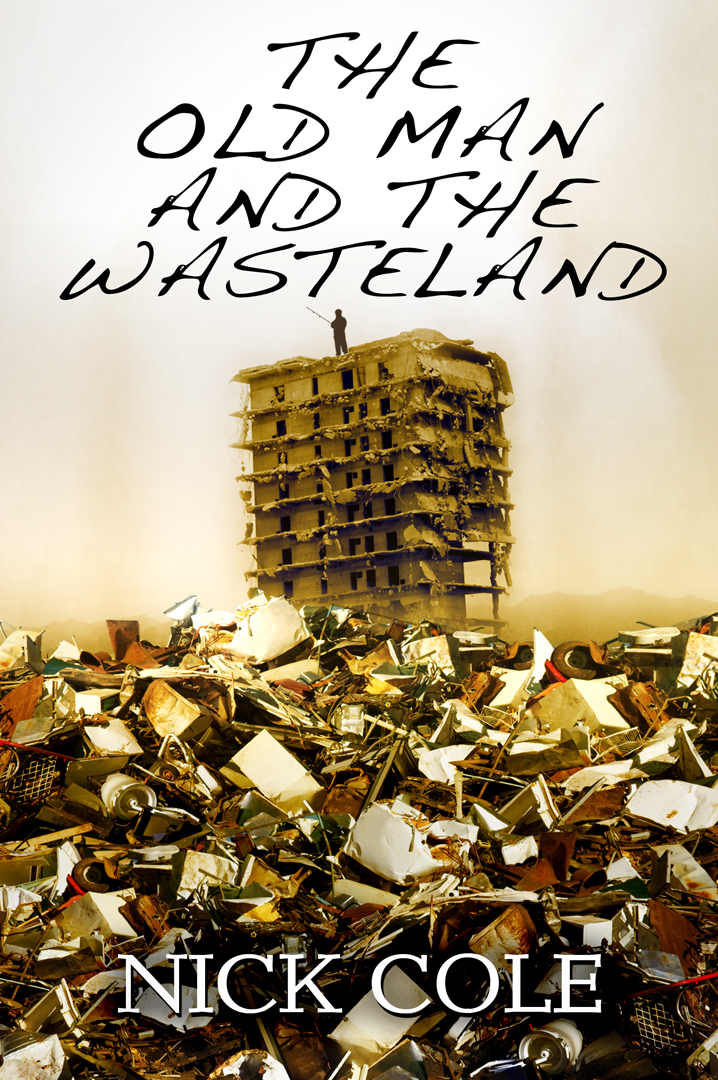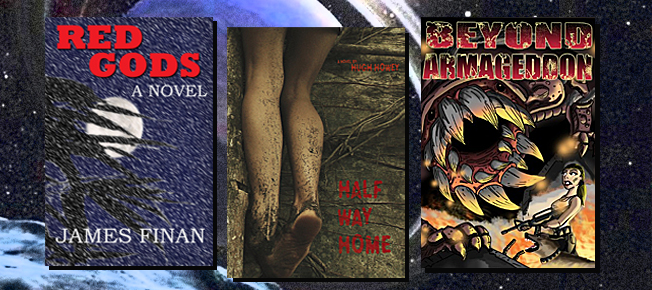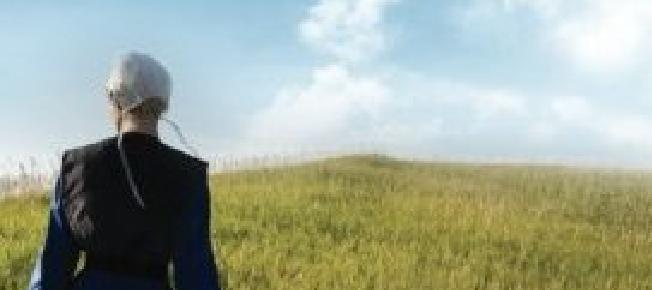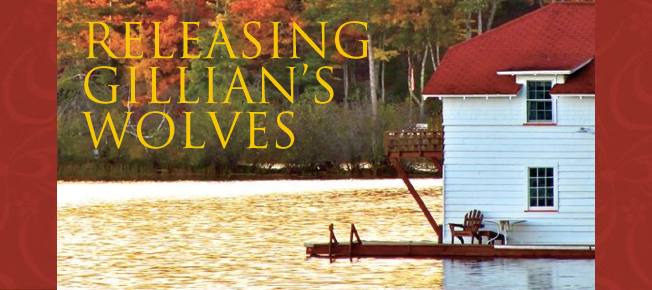Where does our fascination with post-apocalypse time periods come from? Does it derive from delicious wonderings of how we would fare in a survivalist situation? How would we solve the loss puzzle of feeding and housing and procreating ourselves while staving off… well, post-apocalyptic stuff? There’s such a rich variety of challenge to be had! Radiation, zombies, mutant bog creatures, feral human gangs, alien clean-up crews and more. An Armageddon for every taste. Some stories linger on what the actual apocalypse was, but most just charge ahead into how-we-survived tales as dramatic as struggling Pompeian refugees - death and volcanic ruin behind them and the promise of founding Venice ahead.
That was what I was thinking when I picked up Nick Cole’s The Old Man and the Wasteland. The genre goes back further than you’d think, and by now it seems a well-trodden path. I nearly put it aside. After so many movies and books, after hundreds of hours spent creeping through the colorless wastes of Fallout 3 and countless other games, shouldn’t I be world-weary of whatever world the varied apocalypses gave rise to?
Apparently, the answer is no. My reluctance to revisit another ruined world evaporated as this simple story entangled me – an homage to Old Man and the Sea. The tiny part of my mind that likes to keep things tidy looked for props to the often force-fed Hemingway as the rest of my mind just enjoyed the book.
The Old Man here is never named, and lives in a small village on the outskirts of what was Yuma, Arizona. It’s been many years since the bombs fell, and as we meet him, he’s a scavenger who’s not brought back anything useful to the village in quite some time. Many believe he is unlucky. Still vital and sinewy after half a lifetime of scavenging, the old man is faced with becoming obsolete and a burden to his village and family. As he packs a small bag of provisions, he dismisses the thought of taking the one book he owns with him. The Old Man and the Sea. He’s read the book too many times to need it with him, and sees the parallels to himself throughout the story as he makes his decisions. He’s become Hemingway’s hero, whose empty nets were seen as a curse by his village, and who goes out into the sea alone to land a great fish. Our old man leaves his village before dawn, heading into the desert wastes in hopes of bringing back something useful that will restore his place in the village and break his streak of bad luck.
It is a short book – so I won’t detail any of the challenges the man faces on his journey - but the author does a great job of managing the tension in this walkabout through a predominantly empty environment. Both the scenery and the quest seem remarkably fresh. There is still beauty in the rugged landscape, and the man’s appreciation of small, vital things: fresh water, fire, and food (even if it’s rattlesnake) made me want to follow this man to the end. His reality before the apocalypse had become much like a dream to him, affording very little time for thought of loss but guiding him with landmarks as he wanders the shattered highways, seeking the old desert cities. Along the way, his instincts, learned survival skills and cunning prove much more valuable than anything in his pack. While he could survive alone for the rest of his life, he is driven to return successfully to his village or die having tried to be useful, and it endows this ordinary man with a mantle of nobility that acknowledges survival of the human spirit. That is the cleansing punchline, or should be, to all such dusty wasteland tales, and the author achieves it here with a light hand.
A book like this is a great way to spend an afternoon. I looked up from its last pages satisfied, and I appreciated, for a moment, the shelter around me and the least can of beans in my cupboard. Okay, only for a moment. Then I ordered take-out.
I’ll keep an eye out for Nick Cole’s next book
The Old Man and the Wasteland, by Nick Cole. Published in paperback April 2011 by CreateSpace ISBN 1461076382. Also available for Kindle and Nook
© 2011, The Indie Mine. All rights reserved.






Really, really tempted to check this out.
I enjoyed it! It was complete and satisfying with some nice, resonant images. For a first novel and an indie one as well, the author seemed surprisingly comfortable in his craft.
Read it and let me know what you think!
How much of a Hemmingway homage is all this, in the end? Is the book still a worthwhile read for those of us who hate Old Man and the Sea?
I know what you mean, Jeff. Old Man and the Sea certainly secures some of this book’s structure and cohesion, with nods to man’s struggle with and adaptation to an unforgiving environment. And, this character identifies himself with Hemingway’s Santiago. But it isn’t offensively Hemingway.
Thanks Michele for the review. Great writing!
I’ve been sitting here weighing which I dislike the most–books about the apocalypse (the idea of it freaks me out) or books written ala Hemingway (too manly, me thinks). I decided, however, that they probably cancel each other out and this one might be worth a try. Besides, your review makes it sound like a good ol’ adventure yarn/road trip, and those I like.
And the part about eating a rattlesnake? No problem. A little marinade of soy sauce and garlic. Lightly grilled. Tastes like chicken.
Elegantly written. You’ve succeeded in selling me on reading a book that I otherwise probably wouldn’t have even glanced at.
Thank you, Alan. Hope you enjoy it as much as I did! Looks like the author is working on a sequel as well.
Trust me, you needn’t like hemingway nor apocalyptic tales to find this fascinating. Skip the epilogue, though.